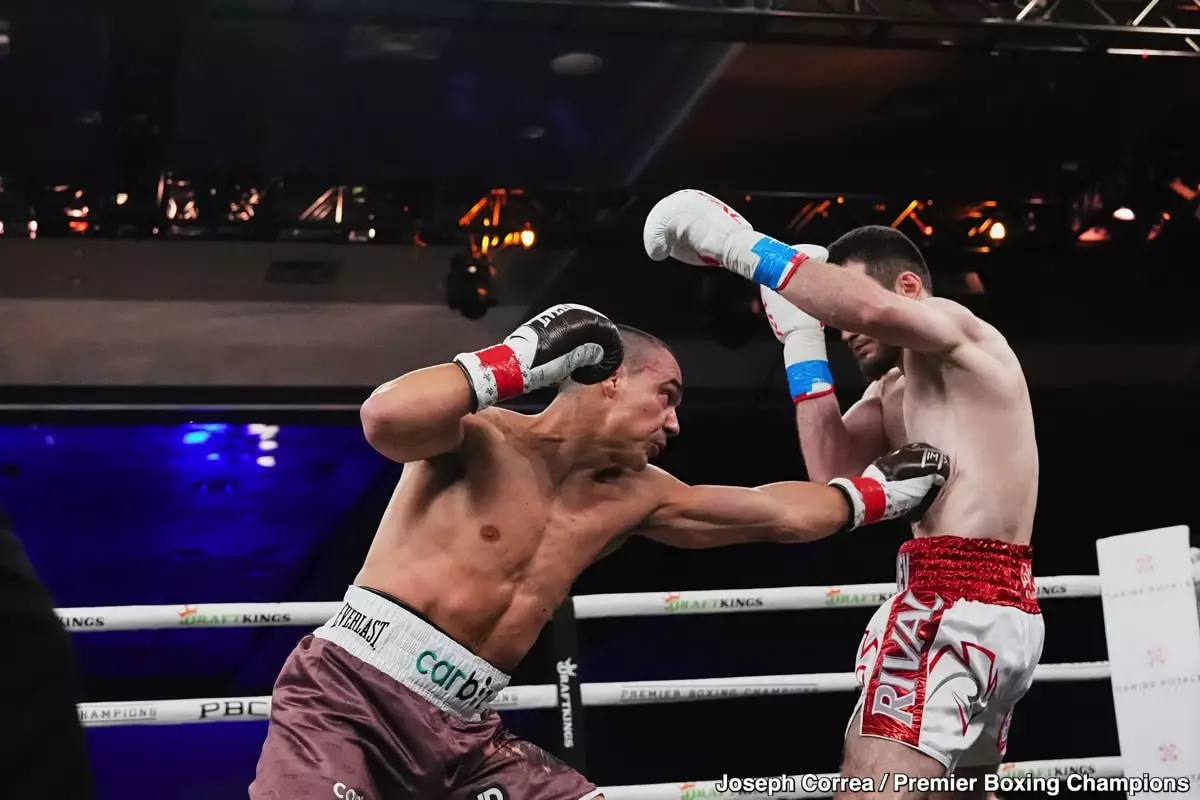The world of boxing is riddled with choices that can make or break a fighter’s career. Recently, Tim Tszyu’s third-round TKO loss to Bakhram Murtazaliev has ignited a firestorm of debate around the role of matchmaking in the sport. As various voices in the boxing community weigh in, it becomes clear that the decisions leading up to this bout are not just tactical blunders but reflections of larger issues in the sport itself.
Tim Tszyu, a promising talent with a record of 24 wins and 2 losses, faced off against Bakhram Murtazaliev, the IBF junior middleweight champion with an undefeated streak of 23-0 before their bout. For Tszyu, this fight came on the heels of a deeply disappointing split-decision loss to Sebastian Fundora just months earlier. Given the emotional and psychological toll of such a defeat, many in the boxing world are puzzled as to why his team chose such a tough opponent for his comeback. In the eyes of former champion Sergio Mora, this decision epitomizes “bad matchmaking”—a term that carries heavy connotations in a sport where the stakes are high and reputations can be obliterated in mere moments.
Mora’s criticism of Tszyu’s team focuses on how ill-timed and strategically unwise this bout was, particularly given the circumstances of Tszyu’s prior loss. However, the concern extends beyond this single match. Historically, boxing has suffered from an epidemic of poor matchmaking, where fighters are often thrown into the ring against opponents with ulterior motives—be it fame, financial gain, or prestige—often neglecting the fighter’s own readiness and the risk to their career. Tszyu’s situation showcases a peculiarity in modern boxing, where the allure of a title shot can overshadow more prudent career decisions.
Critics on social media have rallied against Mora’s viewpoint, arguing that such a cautious stance stifles the competitive spirit that is integral to sports. Fans lament that the “cherry-picking” mentality has left boxing in a stagnant state, lacking in the kind of thrills found in the widespread appeal of leagues like the NFL or NBA. They contend that for boxing to reclaim its status, fighters need to embrace higher-risk matches, just as Tszyu did—a view that invites further scrutiny of the business-side of the sport.
While it is easy to cast stones at Tszyu’s team for their choice of opponent, it’s essential to acknowledge Tszyu’s own courage in stepping into the ring against a feared opponent like Murtazaliev. In a sport where many fighters dodge risks in favor of safer paths to titles, Tszyu’s willingness to challenge himself remains commendable. The legacy of fighters avoiding difficult matchups—such as Terence Crawford’s choice to face lesser-known champions instead of Murtazaliev—highlights a deeply-rooted fear of losing and its potential ramifications.
In this instance, Tszyu’s desire to gain the IBF title was not merely about securing a belt but about positioning himself for future lucrative bouts with high-profile opponents. However, such decisions can also backfire spectacularly. Many boxing enthusiasts wonder if striving for acclaim truly justifies risking a fighter’s standing in the sport. The direct correlation between skill, mental readiness, and strategic matchmaking cannot be overstated, as shown by Tszyu’s unexpected misstep in the ring.
The landscape of boxing is continuously shaped by the decisions made behind the scenes, which can reverberate through fighters’ careers and affect their legacies for years to come. Tim Tszyu’s recent defeat serves not only as a cautionary tale for fighters and promoters alike but also as a call for a deeper examination of the systems governing matchmaking. The overarching question remains: how can boxing regain its footing while allowing its fighters the opportunity to challenge themselves without sacrificing their future? For the sport to thrive, a careful balance between ambition and safety must be found, ensuring that both fighters and fans can enjoy the best that boxing has to offer.

